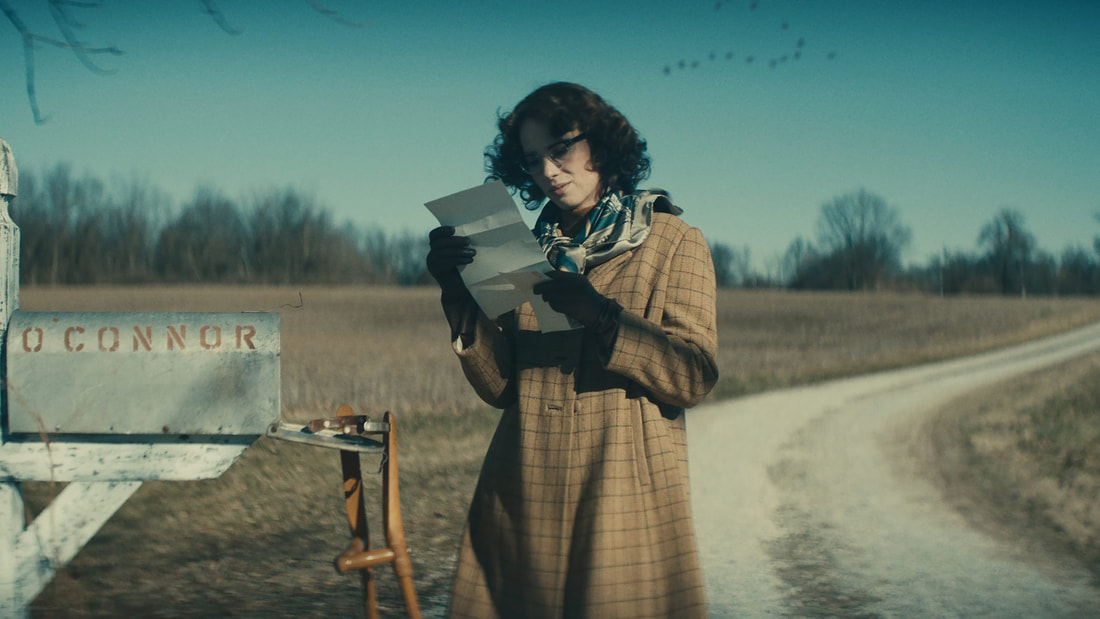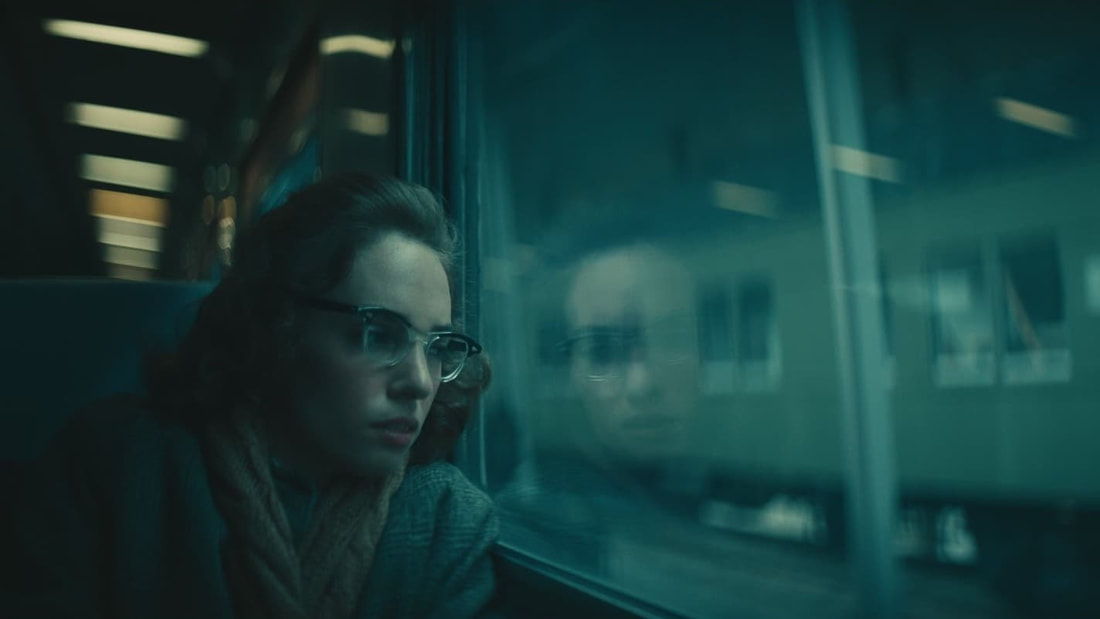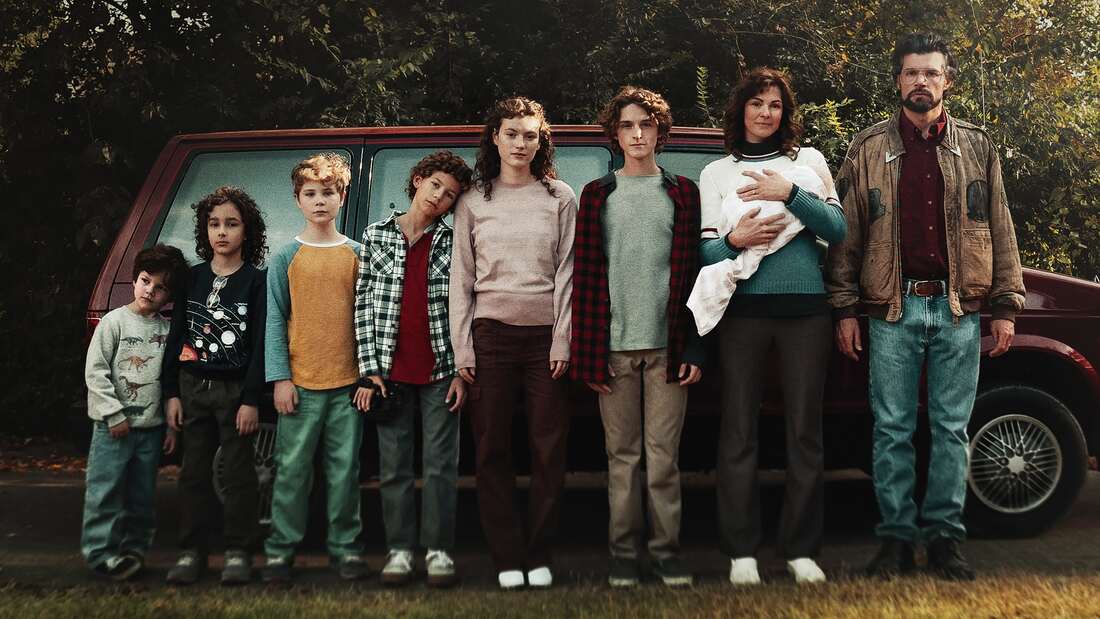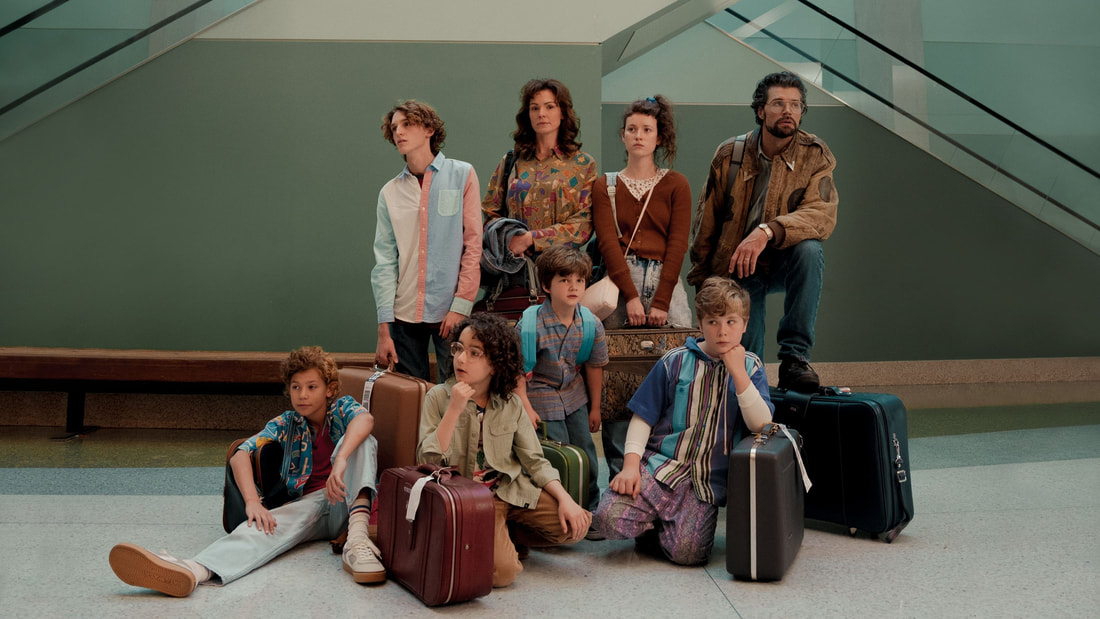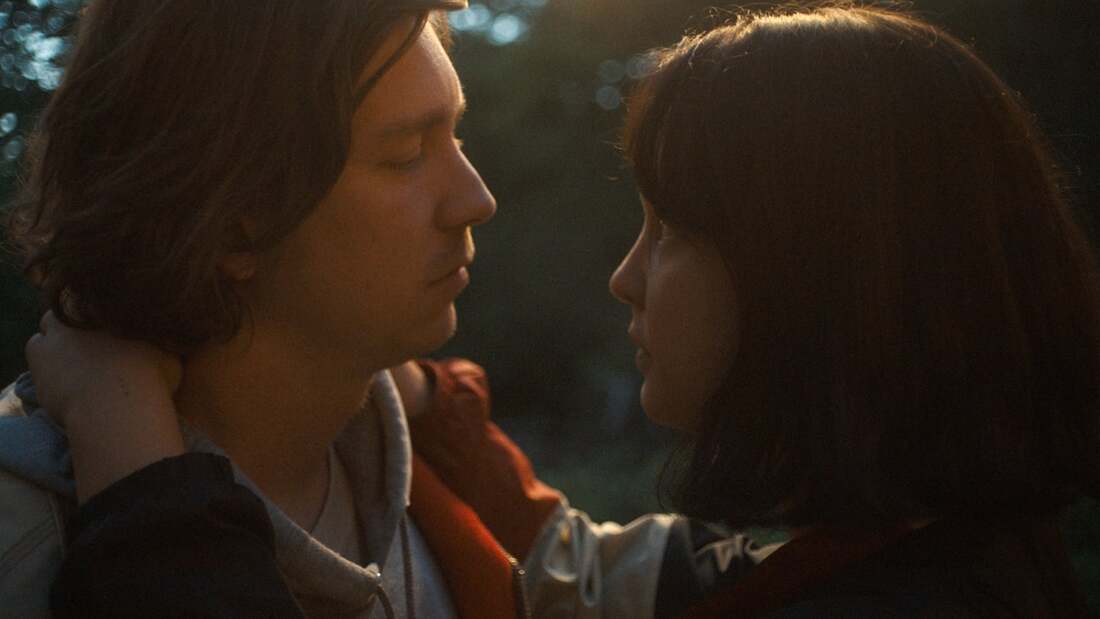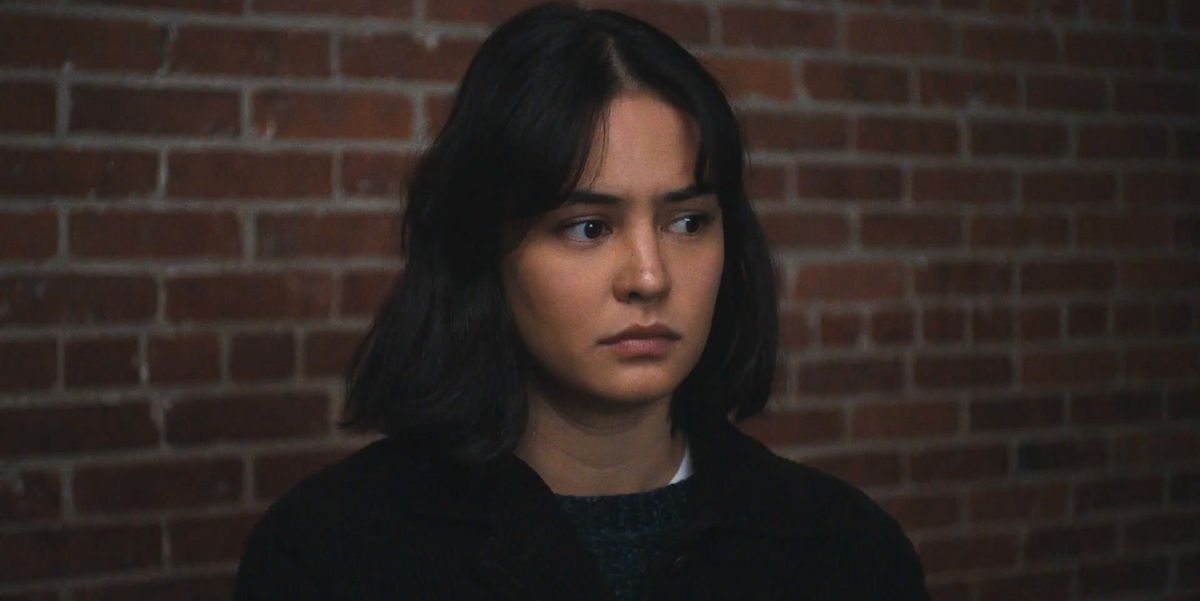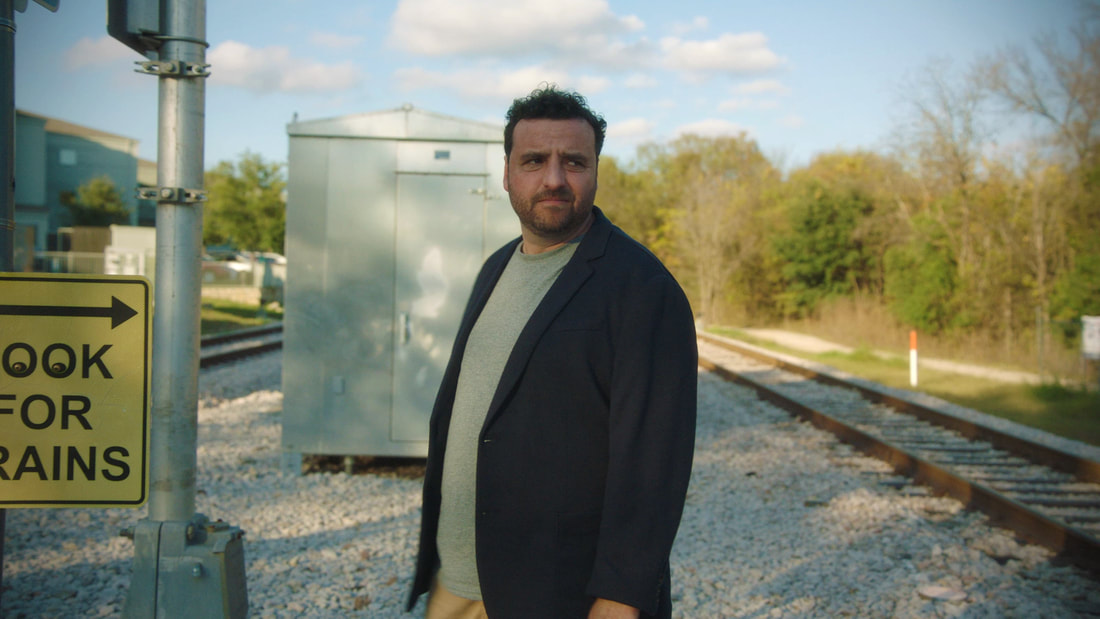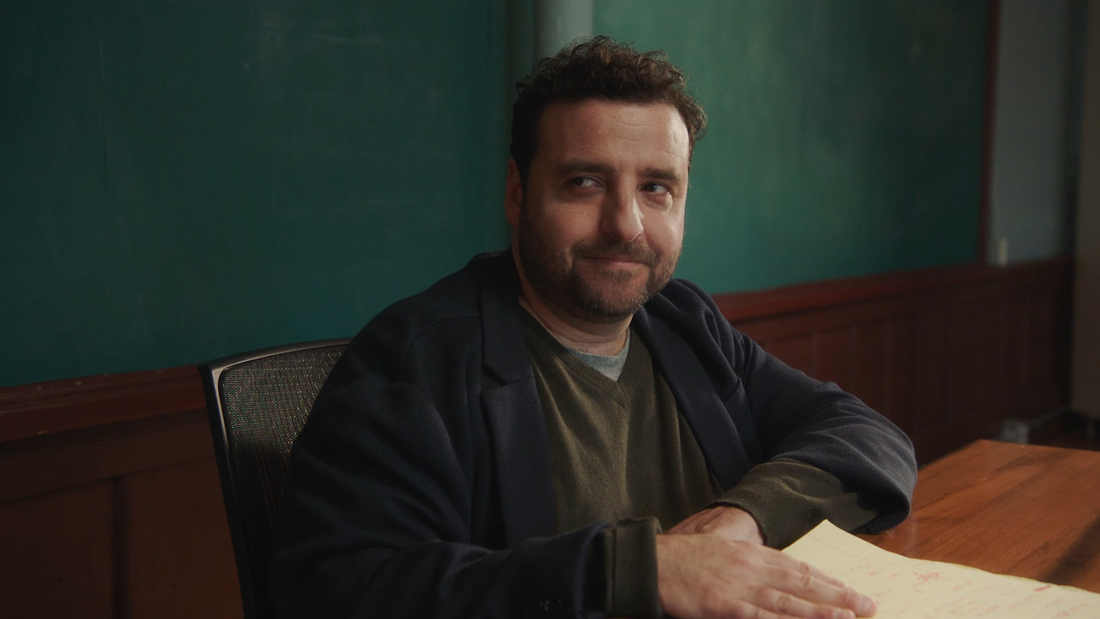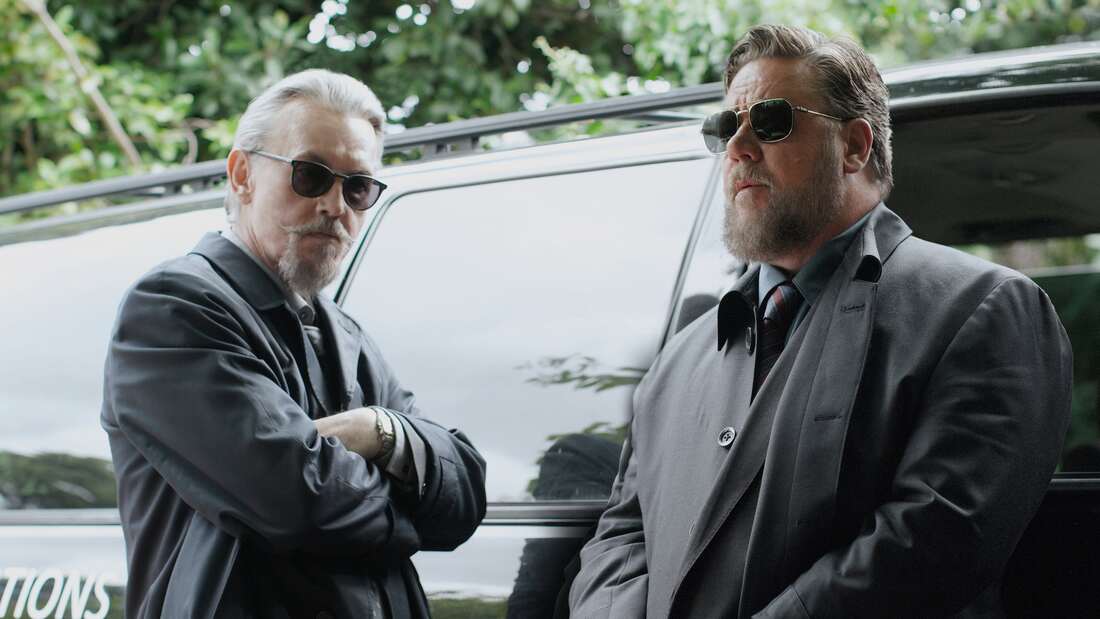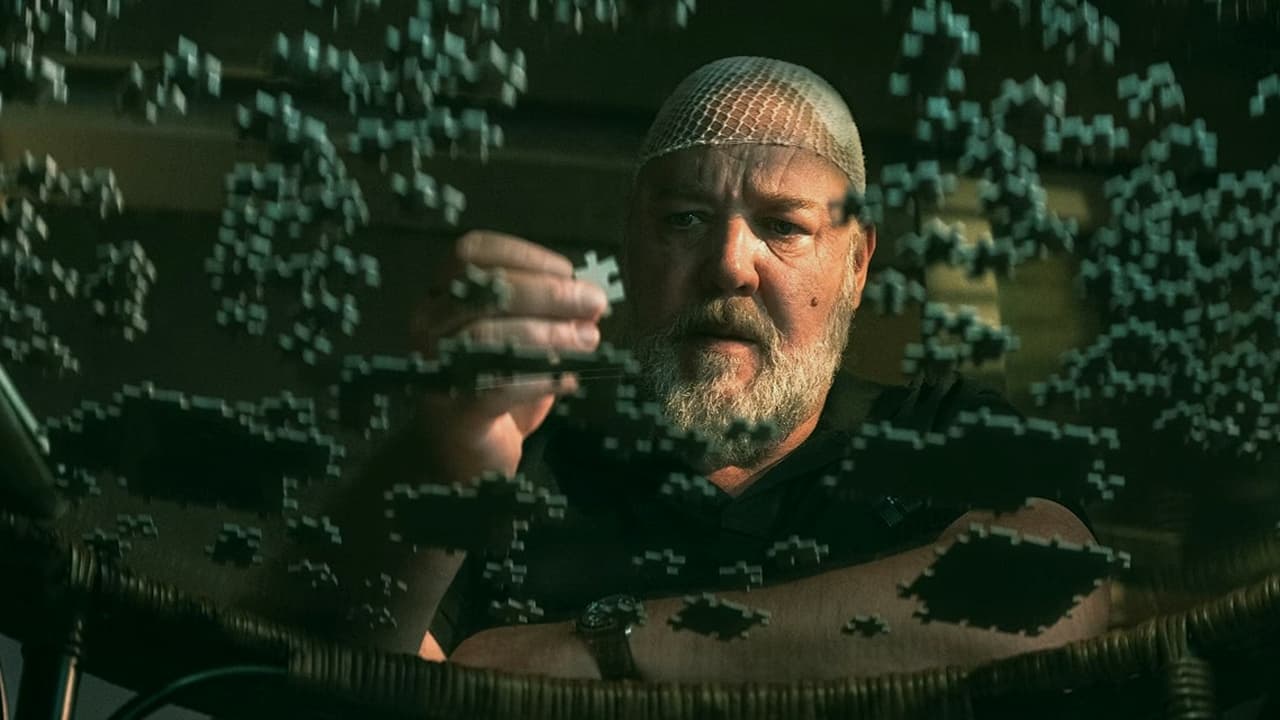|
Review by Cole Groth As sunset falls on Ti West's X trilogy, let's take a moment to acknowledge what a neat event for the horror series. In X, West delivered a gory homage to '70s slasher flicks. In Pearl, we took a step back to the 1910s for a technicolor nightmare, showcasing the origins of X's villain. Now, West looks forward and places us in the '80s to end the trilogy. Out of the three films, this is easily the best. With a phenomenal leading performance from Mia Goth (who starred in all three), splendid kills, and some of the best cinematography from a horror film in a while, MaXXXine isn't just a great conclusion; it's one of the best horror films of the 2020s. Six years after the events of the first film, we follow Maxine Minx (Goth), a porn star looking to make her big break in Hollywood during the mid-'80s. Her journey to the top is interrupted as a terrifying serial killer known as the Night Stalker begins murdering people around her and a private investigator (Kevin Bacon) threatens to expose her involvement in the bloody string of deaths that occurred in her past. Maxine herself is a deeply interesting character, played perfectly by Mia Goth. She carries the aura of mystery around her throughout the film, leading to some great moments as the hero and times when she's frustrating to follow. She's willing to do whatever it takes to reach the top, but her cagey nature leads to plenty of aggravating moments. As the police follow her in an attempt to stop the killer, Minx offers almost no help, and as her friends are being murdered, she remains of little help when she could step up to be a hero. Just because she's the protagonist doesn't mean she's always likable, keeping her a constant source of intrigue. The cast that surrounds Goth is star-studded and brilliant. Elizabeth Debicki, Moses Sumney, Michelle Monaghan, Bobby Cannavale, Giancarlo Esposito, Halsey, and Lily Collins are just a handful of the actors who deliver terrific performances in their supporting roles. They range from devious to heroic, each fleshed out nicely by West's script and interesting to follow. The cast makes MaXXXine stand out as a grand conclusion to the trilogy, bringing it from a series of amateurish low-budget slashers to a horror film with a blockbuster feel.
Speaking of grand, Eliot Rockett's cinematography and West's editing make this one of the coolest-looking horror films of the 21st century. It's perfectly colored and shot to emulate the style of the 80s but manages to stand on its own as more than mere imitation. West plays with some fun editing tricks, like split screens and sliding frames, making this an ambitiously edited film that film nerds will adore. As far as the killer reveal goes, this will fall flat for those unaware of the trilogy. The unveiling comes out of nowhere and makes almost no sense because the film doesn't set it up within the confines of its runtime. This will lead to problems for new fans but gives audiences who showed up to all three films a more satisfying conclusion. Ti West has quickly established himself as a horror director for the ages, and if anything is clear from MaXXXine, it's that horror is more alive than ever. It's an impressive experiment in horror, sealing off a phenomenal modern slasher trilogy on a satisfying and intense note. A24's experiment of releasing three cheap horror films within just a couple of years has clearly paid off. West has stated in interviews that he has ideas for the future of the franchise, and while the series seems to have ended on a perfect note with this film, I'll be eagerly awaiting what's next. MaXXXine releases in theaters starting July 5. Rating: 4.5/5
0 Comments
Review by Cole Groth It's nice to see the murder mystery make a comeback in the last few years because there's nothing quite as satisfying as a good reveal of a killer and a crowd of ridiculous personalities with confusing baggage. Reunion doesn't come to the top of modern murder mysteries, but it's still a fun watch deserving of attention, especially for those who already love this genre. In this Chris Nelson-directed film, our cast is led by Lil Rel Howery and includes Billy Magnussen, Nina Dobrev, Jamie Chung, Jillian Bell, Chace Crawford, and Michael Hitchcock. The crew makes up a fairly funny group, each saddled with controversy. Most are funny, and all are awful people. That said, most of the cast doesn't stand out quite as much as you would hope. People like Howery and Bell are the same type of character you've seen them play for their last ten films, and the rest of the cast just isn't interesting enough to be noteworthy. Reunion has a tone problem. It often feels very cynical and annoying in how most of the characters are rude to each other. We've seen this trope play out — a bunch of assholes get together to collectively trash their experiences as teenagers and explain how much they hate each other. It seems like the film is desperate to achieve this sense of relatability that it never does. I'd like to see a high school reunion film where everybody's awkward but mostly friendly because that's how people actually interact. Although the murder mystery relies on character archetypes, everybody here feels like a mishmash of tired personalities with an overbearing sense of negativity about everything (although, given the circumstances, it's hard to blame everybody for being awful). The mystery itself is pretty fun to watch unfold, and at a brisk 90-minute runtime, it doesn't feel like it drags very much. Without spoiling the killer, though, a few of the twists and turns and the eventual reveal of who did it will leave viewers disappointed. The film feels like it's leading up to a big conclusion, but instead, it takes a bizarre turn that undermines much of what it had going for it. The most critical part of these films is that the ending sticks the landing, and this one misses it.
Aesthetically, this is a miss. The cinematography is bland, the lighting flat, and the editing basic. Since this script isn't incredible, Chris Nelson should've focused on making it stand out visually because, without any eye-catching shots, the only way for this to leave an impression would've been to make it optically compelling. It's reminiscent of See How They Run in the opposite way, which was a fairly decent script elevated by a great crew behind it to make it look more interesting and much better as a result. On the other hand, this film loses any memorability due to an unappealing look. Although this film has been done time and time again, Reunion is a somewhat comforting watch for fans of murder mysteries. It's easy to enjoy because the writing is simple, and there are a few laughs to be had. The cast is nice, the pacing is good, and overall, it's hard to really hate this. Although with a relatively strong cast, you might be left feeling that this was a film deserving of more than just fine. There's potential for something more interesting here, but the script and visuals don't unlock it fully. What's left is a just-decent installment into a very busy genre. Reunion releases on VOD starting June 28. Rating: 2.5/5 Review by Cole Groth The corny tagline of Arena Wars, "The only way to live… is to kill," nicely summarizes what to expect from this low-budget action/thriller: a fun concept, cheap effects, and a weak script. It won't check any boxes as a film with genuine merit, but it deserves praise for being a fun time. In the dystopian world of Arena Wars, convicted criminals are offered a strange chance at redemption: a seven-tiered fight to the death. On each level, a trained killer, each more potent than the last. Most criminals are slaughtered almost immediately, meaning that ratings are down from the sickos who watch this type of program. It's up to our wrongly convicted hero, played by John Wells, to save the ratings, stand out above the bunch, and fight for his freedom. Violence and chaos ensue. The acting is a strange high point in the film. Most of it is pretty corny like you'd expect from the script, but many of the actors seemingly had a fun time behind the scenes, which radiates through the screen as the central group of fighters led their way through the Arena Wars. Most of the characters are douchey, but they're anchored by our lead, who brings a layer of sensitivity necessary to keep this film from not taking itself seriously enough. Outside of bloody chaos and cheap thrills, Brandon Slagle's screenplay tries to elevate the premise through commentary on corporate greed and violence in the media. Unsurprisingly, it doesn't work very well. The dialogue is weak all across the board and entirely too on the nose. This film was meant for the action and not the story. Just because a movie has a low budget shouldn't mean that the script has to be so weak, though, so it can't be excused.
As far as the action goes, it's about what you'd expect — not great. It's mostly fun from its premise, but since the budget is so limited, the full vision of Slagle isn't matched. Most of the fighting consists of characters on a small stage engaging in hand-to-hand against a boring masked killer. That said, this maximizes its minimal budget, leading some of the action to work. The in-universe Arena Wars is a fascinating premise, and it would be pretty interesting to explore with a larger budget. Given the clearly low budget, it's a little tricky to wage the same type of criticism on this film as you would on any other strange sci-fi film. Despite some bad line delivery, strange editing decisions, and a somewhat ugly look, this is pretty fun because of how ambitious it is. If you're a fan of ridiculous and campy sci-fi/horror, this is actually a somewhat worthwhile watch. You wouldn't expect the ending to be nearly as positive as it is, but it ties the film together very well and leaves everything off on a satisfying note. Arena Wars is a test of whether you can forget about most of the technical stuff in a movie if it's fun. This suffers in a lot of places, including writing, visual effects, and editing, but it's the type of corny action fun that works if you're not looking for something serious. Arena Wars is now on VOD. Rating: 2.5/5 Review by Cole Groth Jane Campion’s daughter, Alice Englert, is throwing her hat into the ring with her directorial debut, Bad Behaviour. Starring Jennifer Connelly as a former child actress unraveling under the pressure of her past life and strained relationship with her daughter while on a spiritual retreat, this film is a tonally confusing mess. With spots of humor and drama that feel too sharp around the edges, this might be a worthwhile watch for the ridiculousness alone, but not one that’s ultimately worth your time. Decades ago, Lucy (Connelly) found success as an actress in a kids’ show. She grew up with immense pressure from her demanding mother, and as the years progressed, she had a daughter and formed a turbulent relationship with her. Now seeking some sort of enlightenment, she goes on a retreat with a cast of other emotionally stunted individuals. Half of this film is about the retreat, and half of it is about the results. The two halves of the film play out very differently, with the first being an overbearing fever dream of a dark comedy and the second a more understated drama. Both halves work on their own but clash as a whole. Englert’s direction and script leave a lot to be desired. I found myself questioning every scene in what should’ve been a more straightforward film simply because none of these characters act like human beings. They’re dealing with intense issues such as parental abuse, suicidal thoughts, and intense anger, which get comically played up to a middling effect. Even if you can accept that these are the behaviors of people in real life, this is still a weird watch because almost every character is unlikable in their own special way. Even if the script isn’t great, the actors do their absolute best. Jennifer Connelly offers a stellar performance as the lead character, paired nicely alongside Englert, who also stars in this as the daughter, Dylan. Their relationship is crucial to the film and something that doesn’t come together until the second half. Ben Whishaw plays a bizarre cult-leader-type character, and one of the biggest crimes this movie has is not leaning into his character enough. When the film suddenly rips us from the first half and tosses us into the second, it instantly becomes a weaker film overall. In search of an emotional core, the film loses the bite that makes it worthwhile to begin.
There’s a particular type of charm in the emotional moments of this, even if they cut into some of the comedic elements. Connelly perfectly demonstrates a woman who seems horrible to the world around her, harboring deep trauma. As she quickly falls apart, her transformation is difficult to watch and fascinating. It makes me wonder if this should’ve been more of a straightforward drama or not because if it drops the bizarre freakouts and comedy, it loses what makes it unique, but it would’ve been a damn solid exploration of a former child actress. Bad Behaviour is a big swing and a miss from Australia’s latest nepo-director, but it’s at least charming in its moments of silliness. If you think that Connelly loudly shouting, “I did not poop!” while swaddling herself like a baby sounds like something interesting, then you might enjoy this. The insufferability of these characters will make or break the film for most people. By the film’s conclusion, however, the film has lost so much steam that you might only remember the stupidity or the cruelty of each individual in this. There’s merit to be found in this, but it’s buried under so much nonsense that discovering it will only be fun to a few. Bad Behaviour is now in theaters and on VOD. Rating: 2.5/5 WILDCAT -- Ethan and Maya Hawke Team Up for a Confusing, Unique Telling of Flannery O’Connor’s Life5/3/2024 Review by Cole Groth Ethan Hawke’s directorial efforts haven’t landed him much attention so far. Although his latest production, Wildcat, won’t change this, something is interesting about how daring he is as a director. His fourth narrative feature tells the story of Flannery O’Connor (Maya Hawke), the short-lived American novelist who held a lifelong struggle with illness. Instead of taking the typical biopic route, this film tells us her life story through a series of disjointed vignettes from her short stories. It’s an ambitious effort but one that’s ultimately a bit too confusing to reach the public eye — much like O’Connor herself. Wildcat takes place in 1950, when 24-year-old O’Connor visits her racist mother, Regina (Laura Linney). On her visit, she copes with her growing struggle with Lupus and her battle with publishing her first novel. To escape the oppressive world around her, she frequently takes us into her mind through some of her 31 published short stories. Each vignette brings together a variety of styles and tones, bringing us through on her adventure towards publishing as she pitches her novel around. One of the clear things about this project is that, without Ethan Hawke behind it, this wouldn’t exist. The large cast of actors like Linney, Steve Zahn, Cooper Hoffman, Vincent D’Onofrio, and Liam Neeson makes it clear that a few favors were called in. As far as the acting goes, this is an enjoyable time. Hawke allows all of the actors to embrace a variety of heartfelt, funny, or intense scenes. Each of the vignettes, while tonally confusing, is a pretty good showcase for the large cast. There’s a scene about thirty minutes in which O’Connor’s mom complains about race relations and how slavery was actually a decent thing. At that moment, Jesus walks through the doors of the hospital they’re in and proclaims to her that there are just two spots left to get into heaven, and the only way she could get in is if she became a Black woman or as a white trash woman instead. She pleads with him to stay as herself, a respectable aristocratic white woman. Sounds a little insane, right? That’s about what you can expect from this biopic. It’s plenty of fun and tells an exciting story of her life, but for those familiar with the author or looking for a standard drama, this won’t be the film for you.
The core problem here is that Hawke looks at everything through the silly lens of a modern Hollywood guy. Racism is bad, of course, and he wants us to know that, if he were alive in the ‘60s, he would be the guy telling people that calling Black people inferior wasn’t very nice! It’s the type of screenwriting coming from a guy who doesn’t seem to know much about the past or is desperate to stay in touch with the youth. He almost loses O’Connor in the mix of things by throwing in strange political views that aren’t progressive enough to be daring but also too weak to feel realistic. There’s plenty of cool production and fun directorial style to find in Ethan Hawke’s latest feature, and while Maya Hawke is incredible as O’Connor, it’s clear that her dad has some ways to go before making a film ready for the mainstream. This is simply not a comprehensible enough movie at this stage. It’s weird and daring but also too rough around the edges. Perhaps that’s part of the character, but the viewing experience is ultimately much tougher because of it, and for someone unfamiliar with O’Connor already, I feel like I know her even less after Wildcat. Wildcat releases in theaters starting May 3. Rating: 2.5/5 Review by Cole Groth Unsung Hero is your standard religious drama. If you're aware of the Christian music scene, you've undoubtedly listened to the work of the Christian pop band for KING & COUNTRY. The band, led by Australians Joel and Luke Smallbone, has won four Grammys since 2015 and has solidified themselves as one of the biggest Christian bands of our time. Now, the band's lead singer, Joel Smallbone, is ready to tell his life story as the director and lead actor in this basic, overdramatic biopic of his family and upbringing. With too much focus on religion and not enough good character moments, this falls flat across the board. Taking place in the early 1990s, Unsung Hero tells the story of David and Helen Smallbone, two hard-working Australian immigrants moving to Tennessee with their six children. The move to America isn't as bright as it seems, with the two facing many trials and tribulations on their journey to raise one of the most successful modern Christian artists. It's a narratively satisfying story that doesn't offer much of a unique perspective — the Smallbones face many challenges along the way but ultimately get through it thanks to their Christian faith. At the beginning of the film, Joel and Luke explain the thesis of the film's existence as a love letter to their parents and God. There's something very endearing about the fact that this was made less as an explanation of why the Smallbones are so successful but as a testament to their parents. David, the patriarch, is played by Joel himself and is shown to be an endlessly hard-working man alongside Helen, who tirelessly stretches every dollar in an attempt to feed her family. Even after working dozens of odd jobs to make ends meet, the Smallbones constantly find themselves with nothing left to their name. It feels a little unbelievable sometimes because even after receiving so much aid from others and getting so much work, the family is still totally broke. So, we're left with two conclusions: Joel is overplaying how much his family struggled or how hard his parents worked. Either one cuts into the credibility of the film. The thing about Unsung Hero is that because the successful children tell the story, there aren't any flawed characters here. Joel and Helen are unflappable in their efforts to raise their children right and never do anything wrong. I don't get the impression that the story is entirely honest, and even if the Smallbones were such a flawless family, it's just not particularly interesting to watch. Every problem is one entirely because of the doing of others and gets solved through the family's resilience, Jesus, or the generosity of the kind Christians who surround them.
From a production standpoint, this is an entirely competent film. It's a tad long at almost two hours, but the editing is at least interesting enough to be a little captivating. The cinematography can be interesting at times, and the acting is good. Joel Smallbone, Daisy Betts, Kirrilee Berger, and Jonathan Jackson are a few of the actors in a very large cast that delivers a good performance, but Smallbone and Betts are clear standouts as the leads. As a film about for KING & COUNTRY, you'd probably expect more music to be made by the brothers of the band. Instead, all of the bland music featured in the film is from the daughter, Rebecca, instead. Those wanting to see how the band came to be might be disappointed by the lack of the brothers behind it. Unsung Hero falls into the pitfalls of almost all Christian films, having a contrived conflict entirely solved by faith in Christianity. The Smallbones face one true flaw in their parenting: they're too caring. Even when David gets angry at his children, it's clear that he has the best intentions when talking about what he's talking about. Even after the big argument in the film, the next scene undoes any potential conflict viewers might have about the characters. Fans of Christian filmmaking will probably not find much wrong with this, but is it too much to ask these types of movies to be less overbearing? Everybody but the Christians in this film are cruel to the Smallbones, making this feel like an ultimately shallow film. Unsung Hero releases in theaters starting April 26 Rating: 1.5/5 Review by Cole Groth Brittany Snow’s led a great, varied career as an actress, and as the latest actor-turned-director, she’s proved to be amazingly capable of directing. In Parachute, her debut feature, she carefully and confidently navigates the struggle of having an eating disorder. With a compelling script and good technical style, Snow masterfully weaves a dramatic story with the help of perfect performances from its stars. Parachute navigates the hard-to-talk-about world of eating disorders. Snow’s script, penned alongside Becca Gleason, tells the story of Riley (Courtney Eaton), a woman recently discharged from rehab for her struggles with an eating disorder. Once out, she meets Ethan (Thomas Mann), a charming young man with whom she instantly finds a connection. Throughout the film, the two grow together on a romantic journey of self-discovery for Riley. It’s incredibly important that films about eating disorders handle them with grace and carefulness, which Snow is fully able to do. Snow and Gleason’s script is an amazing drama because it never feels overbearing, even when the circumstances of the story are overbearing for the characters. It’s dramatic without being overly so, incredibly romantic and charming. Snow struggled with an eating disorder in the past and uses her past experiences to subtly fill in the horrors of going through one. It’s painful to watch but important. Beyond the tender way Parachute’s script handles addiction and eating disorders, it also excels with its dialogue. It’s little things like Riley referring to her eating disorder as an “eating thing” that sound like they were written from the perspective of somebody who understands what having an eating disorder is like. It’s authentic and never once degrading. Each conversation between Riley and Ethan sounds natural and up-to-date, with modern lingo that does not sound like it’s trying too hard to be relatable. It’s a romantic, funny, and dramatic script that perfectly handles each subgenre.
With a terrific story and great dialogue, the last thing this film needed to succeed was a good pair of actors with chemistry. Courtney Eaton and Thomas Mann are that pair. The two feel like a real couple, burdened with the trauma of their pasts and moving together like two perfectly intertwined souls. They’re joined by a terrific supporting cast of Gina Rodriguez, Kid Cudi, Francesa Reale, Dave Bautista, and Joel McHale. In a cast where the two leads are already such knockouts, it’s nice to see the supporting cast pull their weight just as well. Dramas about sensitive subjects like eating disorders can often struggle with feeling too intense or boring, something that Brittany Snow can handle very well in Parachute. Her first directorial effort is a compelling watch on all fronts, showcasing the best of everybody involved. It’s clear that Snow has a bright future in writing and directing and that Courtney Eaton is an up-and-coming star. By all accounts, this is worthy of a watch. Parachute is now in theater. Rating: 4/5 Review by Cole Groth Dark comedy is hard to get right. Bob Byington’s Lousy Carter falls into the trappings of most weak films of this genre, with a script that’s far too cynical and abrasive to deliver as many laughs as it should. With a short runtime and a decent cast, fans of this genre might have fun watching this, but those expecting more than a few chuckles will be surprised when they watch this incredibly dry and mean-spirited comedy. Lousy Carter tells the story of an eponymously pathetic professor (David Krumholtz) diagnosed with a terminal illness. With only six months to live, Bob Byington gives us a darkly comedic look into the life of a man with nothing to lose, who somehow loses even more than he bargained for. Over a quick 76-minute runtime, we watch Lousy (yes, his actual name) destroy any existing relationships through a series of stupid decisions. The problems with this film lie in its lousy (heh) screenplay. At its core, it fails because Byington is projecting his sardonic views of the world in a way that doesn’t feel realistic. Most of the characters here are caricatures of real people. At one point, Lousy engages in an affair with his best friend’s wife, only to be told that it drew the two closer together because Lousy was so bad at sex. It’s a funny thought when written down, but the way it plays in the film is about as unfunny as possible. There are certain spots where the film is amusing, but more often than not, it’s balanced with an eye-rollingly dumb joke. For what it’s worth, David Krumholtz is decent in this. He’s a very talented actor, and after having a good role in Oppenheimer, it seems like his career is on the up and up. He’s joined by a decent cast, including Olivia Thirlby, Martin Starr, and Stephen Root. The actors are mostly let down by their parts, but Root is a particularly fun addition to an otherwise bland set of performances.
One particularly weak element is the cinematography. Some shots appear to be done with an iPhone, filmed with horrendous lighting and jarring cuts. Simply put, this film is as ugly to watch as its heart is. It’s unpleasantly edited and strangely confusing when it shouldn’t be. From any production standpoint, this is a flop. Since this was filmed in 15 days, it’s unsurprising that it doesn’t look very good, but you’d hope that the script could make up for any oversight in the production value — it doesn’t. The slice-of-life storytelling will not prepare you for the ridiculousness of the film’s ending. There’s a big twist that it ends up being almost admirably stupid. If you think this guy’s life couldn’t get worse, you’ll have your jaw on the floor, as Byington shows how much worse it can get. David Krumholtz is a very funny man, and it’s sad to see how few laughs this comedy gets. It’s a film that deeply misunderstands the real world and tries too hard to relate to a younger generation. Maybe it’s worth the watch, but if you’re in the mood for something funny, Lousy Carter might be too dry to elicit many laughs. Lousy Carter is now available on VOD. Rating: 2/5 Review by Cole Groth Why do aging actors insist on taking roles in bizarre crime/thrillers? Russell Crowe’s talents have been sorely wasted in films like Sleeping Dogs because he’s a fun actor turned exceptionally boring when constrained to something like this. Despite a few interesting twists and turns, this is one of those films that will generally go unnoticed and ultimately forgotten in almost no time. Sleeping Dogs follows Roy Freeman, a retired policeman struggling with Alzheimer’s. After new information cracks open a cold case threatening to send a man to death row, Roy goes on a mind-bending journey to figure out who the true killer is. Along the way, he discovers that his past is not all he remembered, bringing a mysterious woman (Karen Gillan) into the case with him. Sleeping Dogs is the type of movie that puts an overbearing orchestral score of an alcoholic downing a bottle of vodka at a bar to show him reverting to his whole way. It’s never subtle when it should be; surprisingly, it is coy when explaining the stuff that matters. The complicated parts are dumb and remarkably simple, but every seemingly ordinary scene is hard to follow. The dialogue is over the top and rarely believable. For some odd reason, the opening premise of the film — a death row inmate trying to get the case reopened to save his life — is forgotten for almost the entire movie. For most of the runtime, it almost feels like the film will end without mentioning it. It’s unsurprising and unfortunate that the acting isn’t very good here. Crowe is doing his best against a weak script but can only hold his own so well before it all falls apart. The cast surrounding him all have an overacting problem. Not much blame can be put on the actors when the script’s weakness holds them back from being good. Karen Gillan sounds like she’s ADR-ed in for every scene. Tomy Flanagan is this obnoxiously crooked-sounding cop, and Marton Csokas plays an uncanny valley-looking combination between Russell Crowe and Kevin Spacey as the lead villain.
What Sleeping Dogs may lack in writing quality, it makes up for with thrills. The twists and turns keep the two-hour runtime feel shorter, and sometimes it’s so ridiculous that it wraps around to being a little genius. It often feels like the screenplay was written quicker than the writer’s brains were going, with both writers frantically speaking over each other to get to the next big twist. For fans of noir thrillers, Sleeping Dogs could be a hit. Russell Crowe is convincing as the forgetful detective with a sinister past, and it’s an exciting ride to the end. With a weak script, confusing editing, and weak acting, this winds up like every other crime/thriller with an aging actor: stupid, over-the-top, and somewhat mean-spirited. It’s not a great watch, but it’s at least provocative. Sleeping Dogs releases in theaters starting March 22. Rating: 2/5 Review by Cole Groth Lindsay Lohan’s return to film has so far comprised of three roles: the lead in a Lifetime-style Christmas rom-com (Falling For Christmas, 2022), a cameo in the musical reboot of one of her classic roles (Mean Girls, 2024), and now, a love-on-her-mind woman in Ireland in Irish Wish. If you’re a fan of rom-coms, you’ll probably have fun with this. With a fun fantasy twist, Lohan’s latest role offers something to differentiate itself from Netflix’s other rom-coms. It’s not very well written and boasts plenty of clichés, but as long as your expectations are low, expect a decent time. Maddie Kelly (Lohan) is traveling to Ireland to watch the love of her life (Alexander Vlahos) marry her best friend. After a spontaneous wish to be the one marrying her love instead comes true, she goes on a wild journey of self-discovery to learn that her true soulmate is somebody else entirely (Ed Speleers). You can probably guess how the rest goes. If you plan on watching this, it’s probably to see Lohan on the screen again. If that’s the case, you’re in luck! She’s great here. She’s a bubbly and cheerful presence and pretty funny, too. There’s some physical comedy here and there that’s sorta funny. Lohan is paired nicely with Speleers and Vlahos, who both play well as love interests. The rest of the cast is nothing special. As far as the writing goes, nothing special is happening here. The screenplay relies on familiar tropes and not that much more. The dialogue is decent but sometimes impossibly cringeworthy. Lohan’s character is naive and a little too ridiculous at points. A few laughs are nicely placed throughout, but no joke stands out as anything more than a brief nose exhale. It’s a lot like other wish-fulfillment comedies, like Freaky Friday. A character gets into a wish that seems better than it is and then slowly learns to love their normal life — simple stuff.
It’s an enjoyable time, but one can only hope for something more interesting. At this point, Lohan has returned to the screens, and while her acting abilities are demonstrably limited, it would be nice if she went out into something better. Irish Wish struggles because it’s unmemorable. Many of Netflix’s films are like this: bring a star onto a poorly written and directed premise, watch it go to the top for a week, and then leave forever. If this film was trying to be something subversive or fresh, it could be a new classic for Lohan. A film career can’t be revived on cheesy rom-coms alone. At Tudum, Netflix’s annual press conference to announce their films, Lohan described the film as a “nice story of luck and love and confidence.” She put it great there, and the film isn’t trying to be anything more than just “nice.” You’ll be in and out in 90 minutes. Expect a few laughs, a few smiles, and a sappy kiss at the end. If soapy rom-coms are your thing, Irish Wish will satisfy that craving. However, in a week or so, when that craving comes back, just remember that this type of rom-com offers only a momentary distraction from this bleak world we live in. Irish Wish releases on Netflix on March 15. Rating: 2.5/5 |
Archives
July 2024
Authors
All
|
|
|
disappointment media
Dedicated to unique and diverse perspectives on cinema! |









